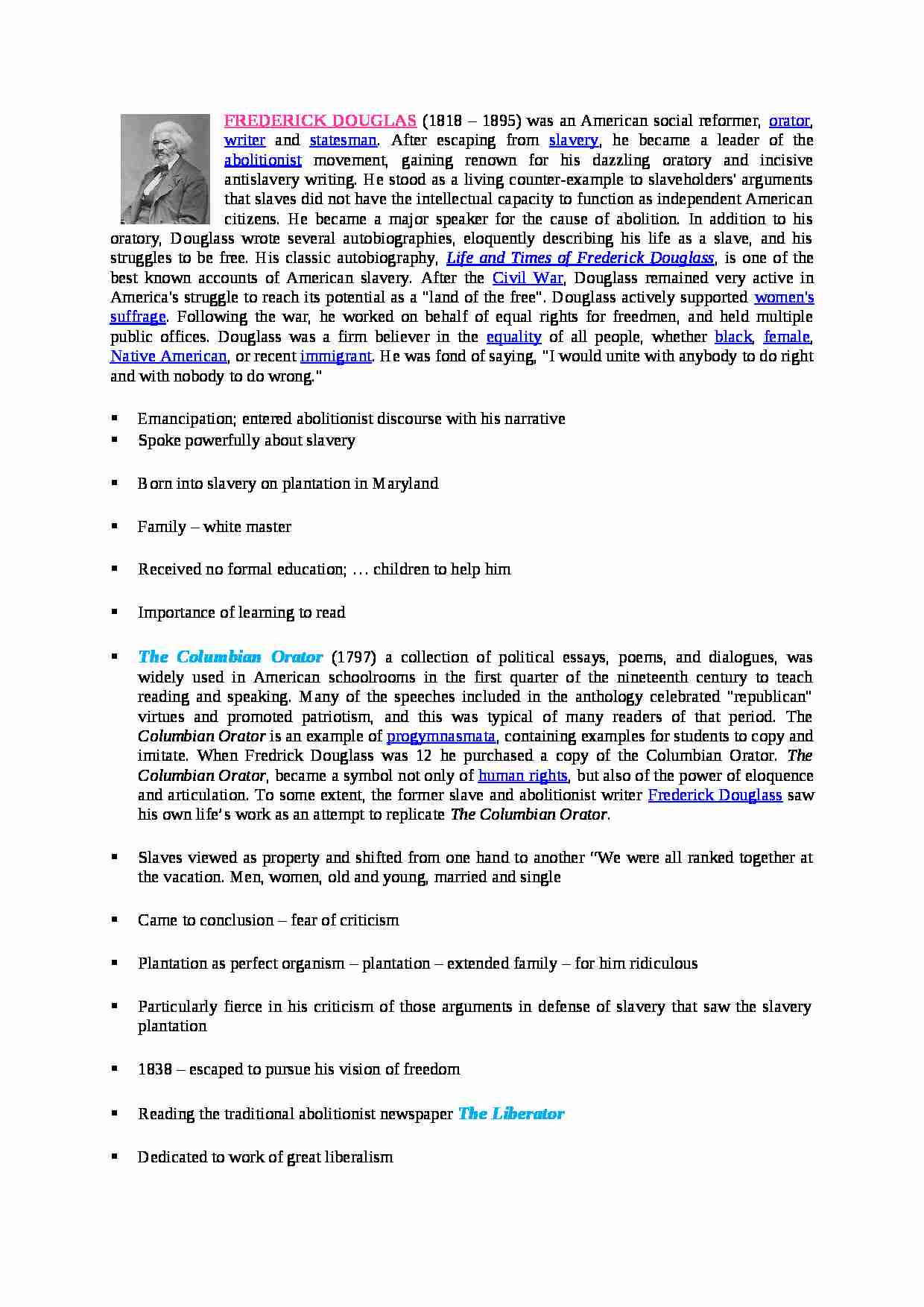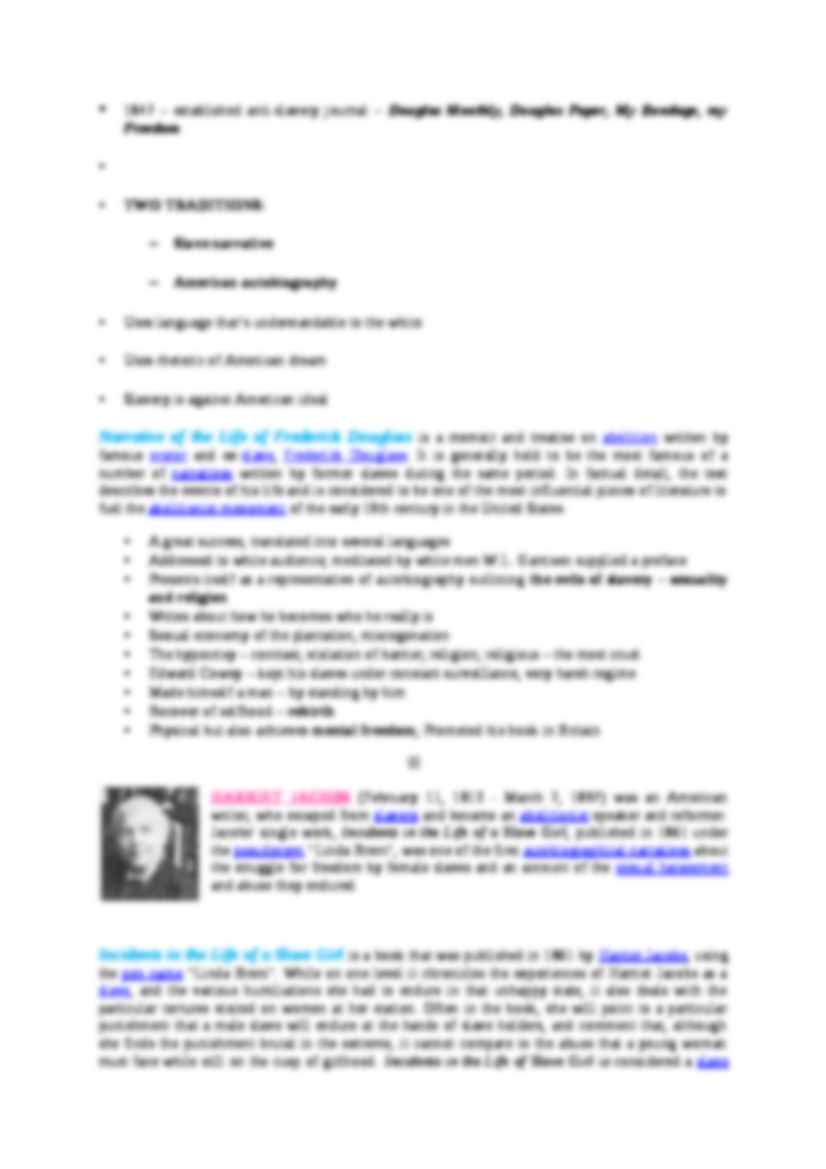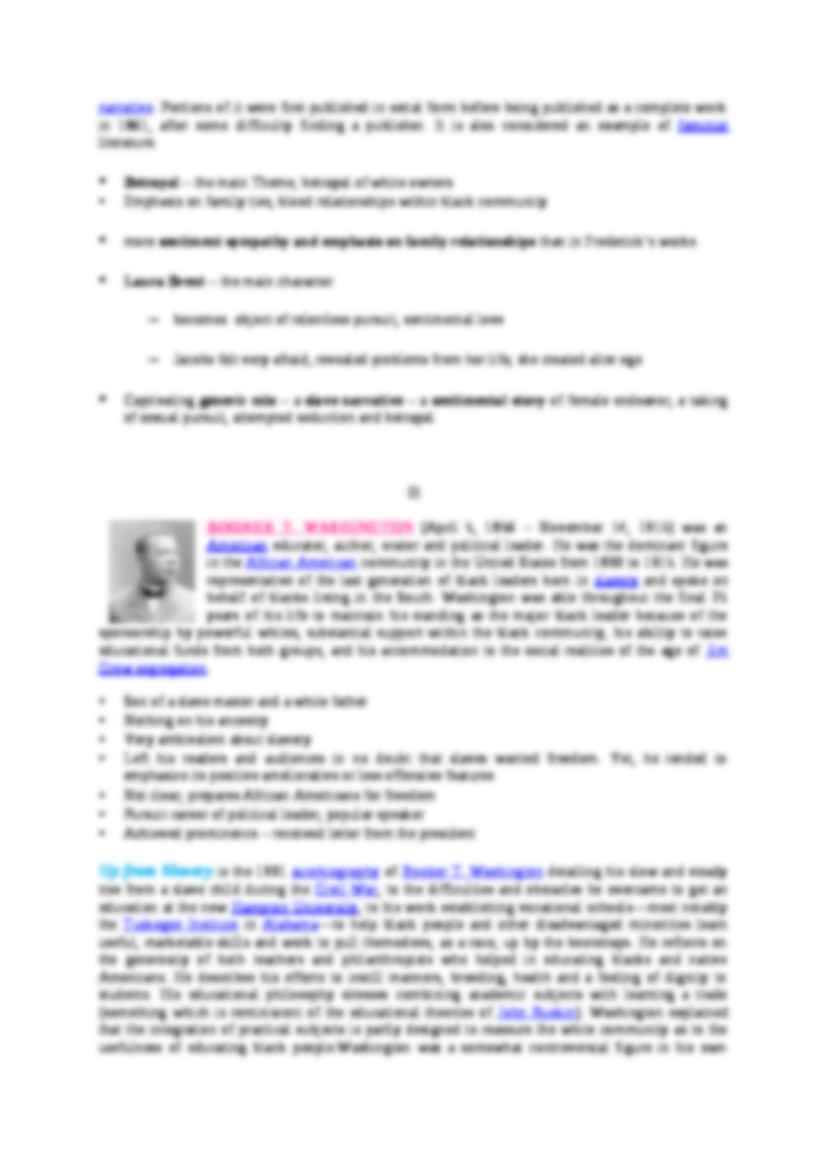To tylko jedna z 5 stron tej notatki. Zaloguj się aby zobaczyć ten dokument.
Zobacz
całą notatkę



Frederick Douglas (1818 - 1895) was an American social reformer, orator, writer and statesman. After escaping from slavery, he became a leader of the abolitionist movement, gaining renown for his dazzling oratory and incisive antislavery writing. He stood as a living counter-example to slaveholders' arguments that slaves did not have the intellectual capacity to function as independent American citizens. He became a major speaker for the cause of abolition. In addition to his oratory, Douglass wrote several autobiographies, eloquently describing his life as a slave, and his struggles to be free. His classic autobiography, Life and Times of Frederick Douglass, is one of the best known accounts of American slavery. After the Civil War, Douglass remained very active in America's struggle to reach its potential as a "land of the free". Douglass actively supported women's suffrage. Following the war, he worked on behalf of equal rights for freedmen, and held multiple public offices. Douglass was a firm believer in the equality of all people, whether black, female, Native American, or recent immigrant. He was fond of saying, "I would unite with anybody to do right and with nobody to do wrong."
Emancipation; entered abolitionist discourse with his narrative
Spoke powerfully about slavery
Born into slavery on plantation in Maryland
Family - white master
Received no formal education; … children to help him
Importance of learning to read
The Columbian Orator (1797) a collection of political essays, poems, and dialogues, was widely used in American schoolrooms in the first quarter of the nineteenth century to teach reading and speaking. Many of the speeches included in the anthology celebrated "republican" virtues and promoted patriotism, and this was typical of many readers of that period. The Columbian Orator is an example of progymnasmata, containing examples for students to copy and imitate. When Fredrick Douglass was 12 he purchased a copy of the Columbian Orator. The Columbian Orator, became a symbol not only of human rights, but also of the power of eloquence and articulation. To some extent, the former slave and abolitionist writer Frederick Douglass saw his own life's work as an attempt to replicate The Columbian Orator.
Slaves viewed as property and shifted from one hand to another “We were all ranked together at the vacation. Men, women, old and young, married and single
Came to conclusion - fear of criticism
Plantation as perfect organism - plantation - extended family - for him ridiculous
Particularly fierce in his criticism of those arguments in defense of slavery that saw the slavery plantation
1838 - escaped to pursue his vision of freedom Reading the traditional abolitionist newspaper The Liberator
Dedicated to work of great liberalism
(…)
… standing as the major black leader because of the sponsorship by powerful whites, substantial support within the black community, his ability to raise educational funds from both groups, and his accommodation to the social realities of the age of Jim Crow segregation.
Son of a slave master and a white father
Nothing on his ancestry
Very ambivalent about slavery
Left his readers and audiences in no doubt…
… to reassure the white community as to the usefulness of educating black people.Washington was a somewhat controversial figure in his own lifetime, and W. E. B. Du Bois, for example, criticized some of his views. The book was, however, a best-seller. While it is aimed at the general reader, V.S. Naipaul has commented that it appears to be sending out separate messages to black and white readers.
The…
... zobacz całą notatkę






Komentarze użytkowników (0)